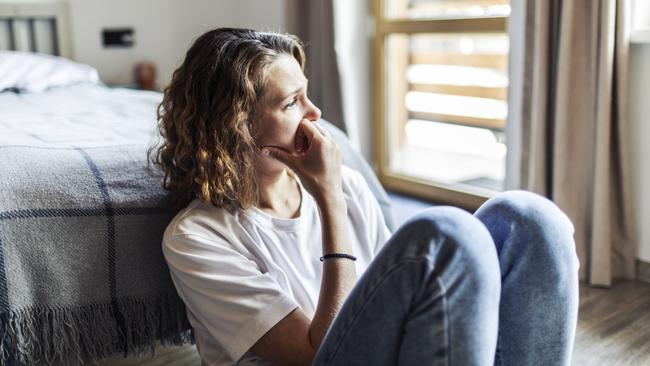Mid-50s may be the turning point for life satisfaction
You’re not imagining it. A wellbeing faultline is emerging in Australia, as satisfaction with life slumps to the worst level it has been in two decades. There is an age when it gets better, though.

A wellbeing faultline is emerging in Australia, with those aged under 55 reporting significantly lower levels of life satisfaction and higher mental distress than older adults.
Across all ages there is a current wellbeing malaise, the latest Australian Unity Wellbeing Index survey finds, with Australians’ personal satisfaction at near-record lows, while satisfaction with life in Australia reached its lowest level in the survey’s 24-year history.
Concerningly, Australians reported their lowest ever satisfaction with their health – a key wellbeing marker.
The survey reported average satisfaction with “life as a whole” at 75.0, only marginally higher than 2022 when Covid was still affecting many people’s lives.
And average satisfaction with “life in Australia”, which includes a consideration of social conditions and the economic situation, has never been lower, dropping to 78.5 after being at 85.2 at its peak in 2009.
The wellbeing chasm emerging between younger adults and those in their mid-50s and beyond is becoming increasingly pronounced.
“Stark age inequities in personal wellbeing persisted, with those aged under 55 years having notably lower wellbeing and higher mental distress and loneliness compared to older adults,” the report concludes.
It says concern about financial security was far more prevalent among younger adults.
More than half of the adults under 55 reported experiencing material deprivation – meaning they went without at least one essential item, most commonly healthcare or food, in the month prior to being surveyed because of money pressures – compared with a quarter of older adults.
“And (they) were more than twice as likely to feel worse off financially compared to their parents at the same age than those over 55 years old,” the report says.
“Young adults were doing it particularly tough. As well as having the lowest personal wellbeing scores, 18 to 34-year-olds reported the highest feelings of mental distress and loneliness.”
Overall, those with a household income of $104,000 or less recorded notably lower personal wellbeing than those with higher household incomes.
Renters reported much lower levels of wellbeing compared with homeowners (even those with a mortgage) and felt especially low satisfaction with their financial security.
Report lead author Kate Lycett, a research fellow at Deakin University School of Psychology, said recent surveys had shown a significant shift from decades of data that had seen wellbeing scores higher for young people than those in middle age, then rising again later in life.

“Being able to afford things like food and rent and healthcare are things they’re struggling with,” Dr Lycett said. “(And) the cost-of-living crisis has really borne on them in terms of whether … they’re ever going to own a house.
“They’re also worried about the climate crisis, so I think that generation is just really struggling at the moment.”
Australian Unity chief executive wealth and capital markets Esther Kerr said “the generational gap, when it comes to financial wellbeing, and consequently overall wellbeing, is accelerating”.
“On one hand, we have people over 55 owning real estate and with healthy savings, while younger generations are on a spinning hamster wheel as saving gets harder and harder, and asset ownership gets further and further out of their reach,” Ms Kerr said.
“If this continues, we’ll be living in a country where wellbeing is for the wealthy and home ownership is hereditary.”
The 2024 study surveyed 3000 people via telephone and online responses in June.
It found that Australians’ satisfaction with their ability to afford the things they needed was the strongest factor differentiating high and low subjective wellbeing, followed by socio-emotional and relational factors.
Dr Lycett said wellbeing and finances were linked in myriad ways. “We don’t think of young people as being lonely but they are, and I think one of the reasons for that is they don’t have the financial means to participate in the social aspects of life that they used to,” she said.





To join the conversation, please log in. Don't have an account? Register
Join the conversation, you are commenting as Logout